How To Use A Hair Mask + 4 Benefits Of Using It
Learn how to repair the damage, preserve your hair color, and nourish your locks.

Image: ShutterStock
You can include a mask in your hair routine to help nourish your tresses and provide them with a much-needed boost for what they go through every day. So, how to use a hair mask effectively to strengthen your locks to withstand environmental and other hazards?
Before we head to that, let us learn how these masks help care for your hair. Besides keeping your hair moisturized, they offer essential vitamins, minerals, fats, and proteins your hair.
In this article, we will answer all your queries and delve deeper into how these masks can help treat different conditions like dandruff, hair thinning, and many more. Keep scrolling.
In This Article
The Definition Of A Hair Mask
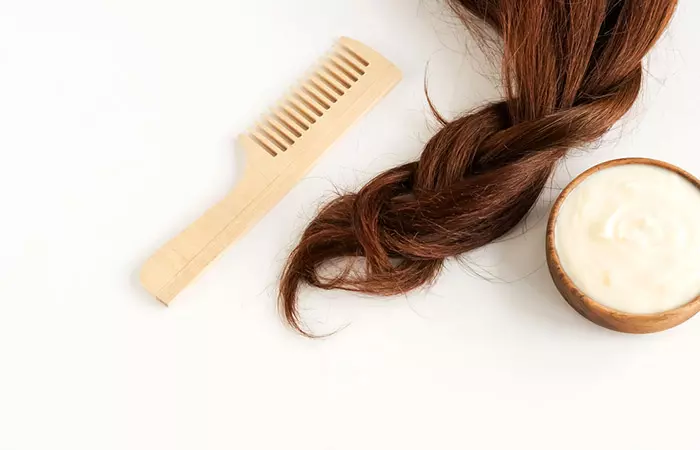
A hair mask is a deep hair conditioning treatment designed to heal hair damage. It is made from a host of natural ingredients and lipidsi Fatty or oily substances present in natural ingredients like dairy products, meat, seafood, and nuts. present in high concentrations. Each of these ingredients has its own properties and is picked based on your hair needs.
You can use a hair mask as frequently as needed for hair repair and hair nourishment. For best results, we recommend using a hair mask at least once a week. Overnight hair masks are also a great option for weekly nourishment.
The ingredients in a hair mask must be selected as per the needs of the hair type. For oily hair, look for lightweight, balancing formulas that won’t add excess oil. Dry hair benefits from deeply moisturizing masks with ingredients like shea butter. Curly hair thrives with masks that enhance curl definition, while color-treated hair needs masks with color-safe ingredients to maintain vibrancy.
While you can find these hair products at any drugstore, you can create your own mask at home that perfectly suits your requirements. Such a hair mask also offers certain benefits.
Key Takeaways
- Hair masks nourish and condition hair, maintain its color, and repair damage.
- You can use natural ingredients like almond oil, banana seeds, coconut oil, and yogurt to make hair masks.
- Different hair masks treat different hair issues like thinning hair, dandruff, and hair fall.
- When using a hair mask, there are some factors to consider, such as washing your hair with warm water.
Benefits Of A Hair Mask
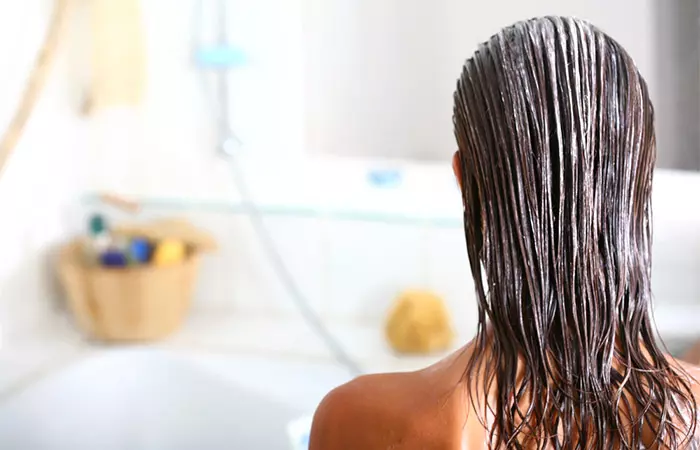
1. Does Not Weigh Your Hair Down
Hair masks contain several natural oils and other rich ingredients but are not heavy. These products are specially designed to condition your shaft without leaving any residue. A hair mask smoothens your hair and boosts its shine.
2. Replenishes Dry Hair Strands
A hair mask can rehydrate your dry tresses. It gives your locks a healthy dose of moisture and acts as a conditioner. It also offers electrolytesi Electrically charged minerals that play an important role in maintaining the water and pH levels in the body. , minerals, and vitamins to frizzy hair and seals hydration.
3. Helps Maintain Hair Color
Hair color could be damaging. It can strip hair moisture and leave it feeling rough and dry. You can prevent this by applying a hair mask to color-treated hair at least once a week. This will allow your shafts to reabsorb the moisture and makes your hair look fresh and fabulous.
4. Repairs Hair
The nourishing ingredients of a hair mask offer your shaft the required nutrients to strengthen itself. The effectiveness of a hair mask is largely determined by the ingredients used to make it. Let us discuss these important ingredients in the next segment.
What Ingredients Should You Include In Your Hair Mask?
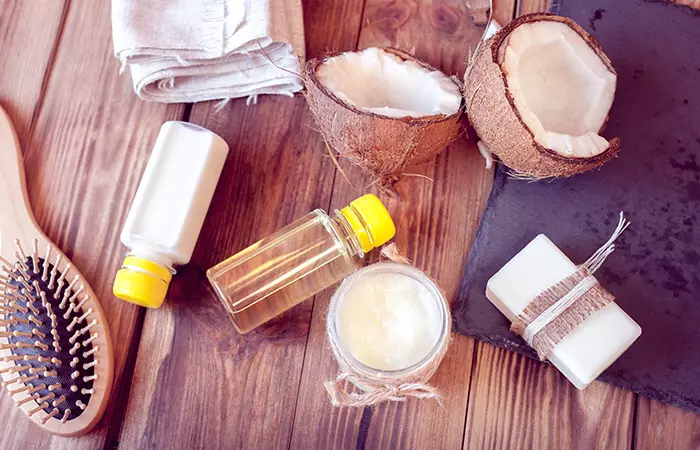
1. Almond Oil
A hair mask should nourish the hair roots as well as the hair tips, and almond oil can help achieve this. It contains emollientsi Ingredients used in skincare products to hydrate. soften, and soothe dry, rough, and cracked skin. (1). These could rejuvenate the scalp. Almond oil also has anti-inflammatory properties (1). The oil may help treat dandruff, dry scales, and other forms of scalp inflammation.
2. Banana Seeds
Banana seeds contain various antioxidants (2). These fight against the effects of free radicals and may also slow down hair graying. However, the seeds are not recommended for those with latexi A white substance found in various plants that may cause an allergic reaction in some individuals. allergies,
3. Coconut Oil
Coconut oil is rich in proteins that can moisturize, strengthen, and replenish your hair shaft. It hydrates hair and protects the scalp by suppressing various inflammatory responses. It also enhances the scalp barrier function and protects the scalp from outside aggressors. It even may help treat scalp eczema or atopic dermatitisi A chronic skin condition characterized by dry, red, and itchy skin due to genetic mutations or exposure to allergens. (3)
4. Yogurt
Many individuals have reported positive results after applying a hair mask made of yogurt. The proteins in yogurt may soften and strengthen hair. Yogurt may also fight dandruff. However, more research is warranted in this regard. You may also include other ingredients like honey, lavender oil, sandalwood oil, olive oil, mayonnaise, jojoba oil, avocado oil, mango butter, keratin, shea butter, aloe vera, and argan oil in your hair mask. These ingredients also possess various moisturizing and anti-inflammatory properties.
 Quick Tip
Quick TipLet us now understand how you can make a hair mask to treat different hair issues.
How Do You Make A Hair Mask For Damaged Hair?
Opt for ingredients rich in omega-3 fatty acids and antioxidants. These protect your hair against free radicals, strengthen your hair strands, and boost hair shine. You Will Need
- 1 tablespoon of honey
- 1 tablespoon of almond oil
- 1 egg
- Half an avocado
How To Make
- Mash the avocado with a fork.
- Add the egg to it and whisk together.
- Mix in the honey and almond oil.
- Apply liberally to your hair.
- Leave it on for 30 minutes and wash with water.
Bhavna, a business analyst, makeup lover, and blogger, shares her hair care routine to fight wavy, damaged, and frizzy hair. She applies a hair mask made of honey, mashed banana, eggs, and yogurt to repair her damaged hair. She states, “A simple hair mask can effectively reduce frizz. I use this homemade hair mask once a week and it works amazingly well for my hair (i).”
 Quick Tip
Quick TipHow Do You Make A Hair Mask For Dry, Dandruff-Laden Hair?
While one does not cause the other, people often experience dry hair and an onslaught of dandruff together. A homemade hair mask for dry hair will moisturize your hair shafts and exfoliate your scalp, helping eliminate dandruff.
- 4 tablespoons of raw sugar
- 1 egg
- 1 tablespoon of honey
- 1 tablespoon of apple cider vinegar
How To Make
- Add the honey, apple cider vinegar, and egg to a bowl. Mix well.
- Gently stir in the raw sugar until it is dispersed throughout the liquid. Ensure the sugar does not dissolve in the concoction.
- Leave aside for 30 minutes and apply liberally to the scalp and hair.
- Leave it on for another 30 minutes and wash with regular water.
You can double or triple the amount of the ingredients to match your hair length. The sugar and vinegar help exfoliate the scalp and get rid of sweat and sebum buildup. Massage the mask into the scalp for 5 minutes for the exfoliating action to take place.
How Do You Make A Hair Mask To Treat Thinning Hair?
Healthy fats and proteins are vital for hair growth and thickness. This mask contains ingredients rich in such nutrients. You Will Need
- Half an avocado
- 1 egg
- 1 tablespoon of coconut oil
- ½ a teaspoon of honey
How To Make
- Mash the avocado in a bowl and keep it aside.
- Beat the egg in another bowl.
- Add the coconut oil and honey to the beaten egg.
- Add the liquid to the mashed avocado and mix until combined.
- Apply liberally to your hair and scalp.
- Leave it on for 30 minutes and wash with regular water.
A good diy protein-rich hair mask like this will give your thin and limp hair the fullness that it needs by giving it a protein coat.
These hair masks target specific issues and help treat them. While the ingredients used in a hair mask are key, you also must know the right method of application.
How Do You Apply A Hair Mask To Your Hair Strands?

- Start by washing and shampooing your hair with lukewarm water.
- Squeeze the water out of your hair and gently pat it with a towel to remove the excess moisture.
- Divide your damp hair into four sections and secure each section in place with a clip.
- Apply the hair mask to the first section. Start at the tips and work your way up to the roots and the scalp.
- Repeat this step for the remaining three sections.
- Let the mask process on your strands for 15 to 20 minutes.
- Rinse your hair thoroughly with cool water and condition it.
To ensure the best results, keep the following pointers in mind.
Points To Keep In Mind When Using A Hair Mask

- Wash your hair with warm water before applying a hair mask. Warm water will open the cuticles and allows them to absorb the moisture from the hair mask.
- Rinse out your mask with cold water. This will close the hair cuticles and seal in the moisture.
- Do not aggressively rub your hair with a towel, as it may cause static and further damage your strands.
- For optimum results, pick or create a hair mask that specifically suits your hair type and needs.
How Often Should You Use A Hair Mask?
The frequency of using hair masks depends on your hair type.
- Damaged Hair: Twice to thrice a week. Nutrient-rich hair masks can help renew your hair. You may then reduce the frequency of use as your mane gets repaired.
- Dry Hair: Twice a week. This gives your dry hair an extra boost of hydration.
- Curly Hair: Once a week. As curly hair is not washed regularly, using a mask more than once a week may lead to product buildup.
- Thick Hair: Once to twice a week. If your thick hair is dried or damaged, you may use a mask twice a week. Otherwise, once should suffice.
- Fine Hair: Once a week. This ensures your hair does not get weighed down.
- Greasy Hair: Once a week. This is to provide nourishment to your hair without causing any buildup.
- Healthy Hair: Once a week. Even healthy hair can benefit from an extra nutrient boost once a week.
Infographic: Dos & Don’ts Of Using A Hair Mask
The benefits of a hair treatment mask may get you all excited to use one as soon as possible. However, you must be aware of certain things before you choose one for yourself. Click on the infographic below to know the necessary pointers to keep in mind before trying on a hair mask. Illustration: StyleCraze Design Team
Hair masks are an inseparable part of many hair care regimens, and they offer an array of health benefits. But knowing how to use a hair mask improves its effectiveness and promotes hair health.
Hair masks smoothen the hair, rehydrate the hair, help maintain hair color, and effectively repair the hair. Yogurt, banana seeds, and coconut oil can be used to make a hair mask. Applying the hair mask on washed hair with warm water improves its effectiveness.
Try including any of the masks mentioned above in your hair care regimen for healthy hair.
Frequently Asked Questions
Can I leave a hair mask on overnight?
No. Not all hair masks are designed for overnight use. Leaving those masks on overnight may make your hair greasy, brittle, or even damaged. However, if the product label specifies it as a leave-in or overnight treatment, it’s safe to wear the mask while you sleep.
What ingredients should I avoid in hair masks?
Stay away from masks that contain sulfates, parabens, and alcohols. These ingredients can strip moisture from your scalp or irritate it, especially if your hair is dry or sensitive.
Can you leave a hair mask on too long?
Leaving a hair mask on for too long does not have any added benefits. Therefore, it is safer to leave it on your hair only for the recommended duration.
Can I use a hair mask as a leave-in conditioner?
Using a hair mask as a leave-in conditioner may not yield any benefits. Consult a dermatologist before doing so.
Can I use a hair mask daily?
Using a hair mask daily is not recommended. You may use it once a week to reap its benefits.
Illustration: How To Use A Hair Mask + 4 Benefits Of Using It

Image: Dall·E/StyleCraze Design Team
Hair masks help rejuvenate dry and damaged hair. Check out the video below to learn how to apply a hair mask perfectly for glossy, strong, and nourished locks.
Personal Experience: Source
StyleCraze's articles are interwoven with authentic personal narratives that provide depth and resonance to our content. Below are the sources of the personal accounts referenced in this article.
i. My Holy Grail Hair Care Products!https://makeupshesaid.wordpress.com/2017/02/01/my-holy-grail-hair-care-products/
References
Articles on StyleCraze are backed by verified information from peer-reviewed and academic research papers, reputed organizations, research institutions, and medical associations to ensure accuracy and relevance. Read our editorial policy to learn more.
- The uses and properties of almond oil
https://www.sciencedirect.com/science/article/abs/pii/S1744388109000772?via%3Dihub - Antidiarrheal, Antioxidant and Antimicrobial Activities of the Musa sapientum Seed
https://pubmed.ncbi.nlm.nih.gov/23407989/ - In vitro anti-inflammatory and skin protective properties of Virgin coconut oil
https://www.sciencedirect.com/science/article/pii/S2225411017300871?via%3Dihub
- The uses and properties of almond oil
https://www.sciencedirect.com/science/article/abs/pii/S1744388109000772?via%3Dihub - Antidiarrheal, Antioxidant and Antimicrobial Activities of the Musa sapientum Seed
https://pubmed.ncbi.nlm.nih.gov/23407989/ - In vitro anti-inflammatory and skin protective properties of Virgin coconut oil
https://www.sciencedirect.com/science/article/pii/S2225411017300871?via%3Dihub
Read full bio of Dr. Rekha Yadav
Read full bio of Annie Jangam
Read full bio of Ramona Sinha
Read full bio of Swathi E






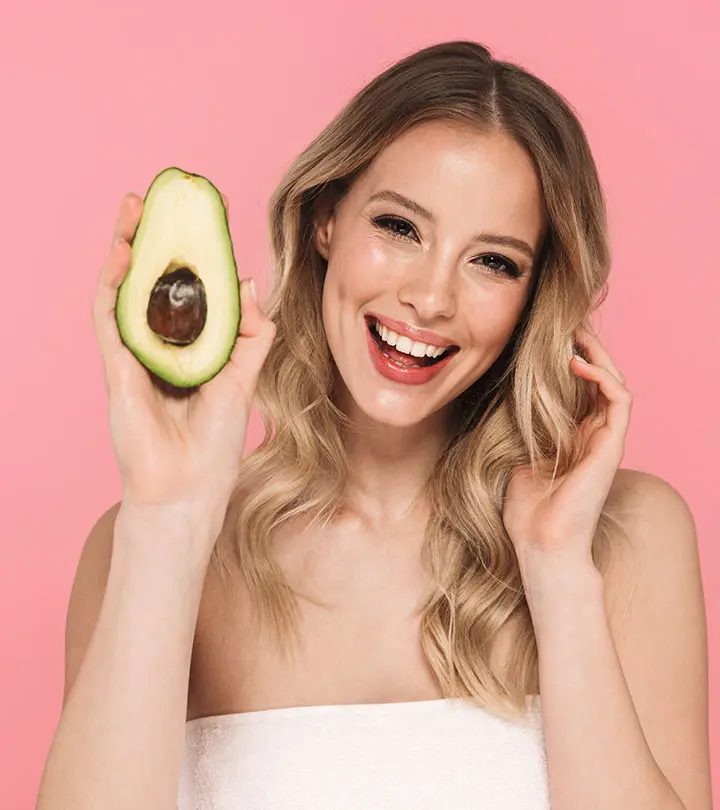

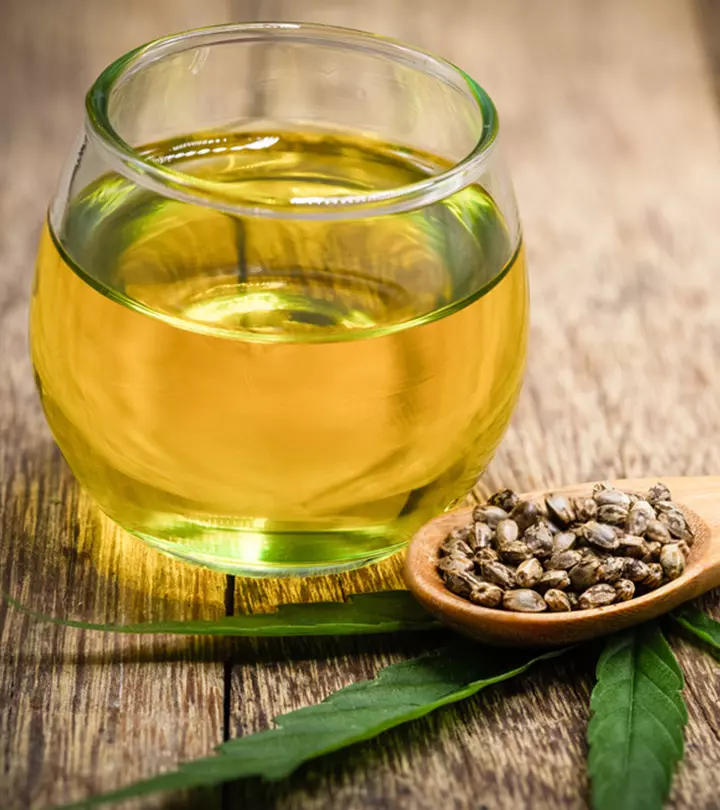
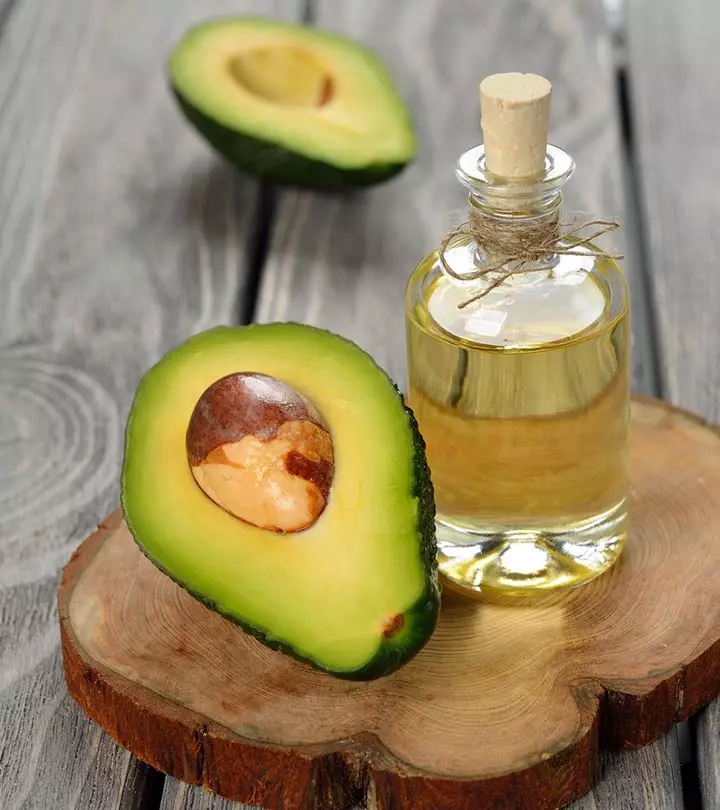
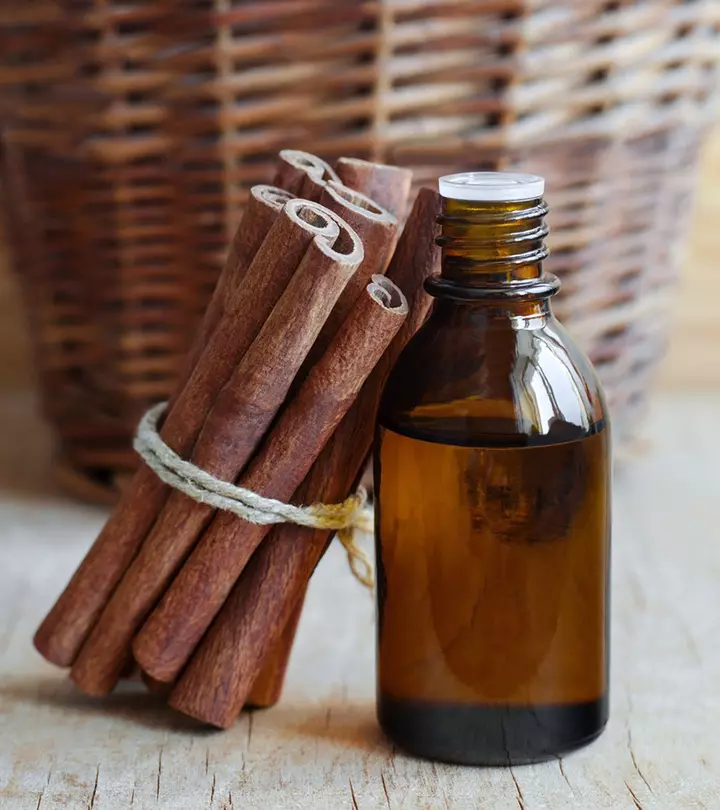
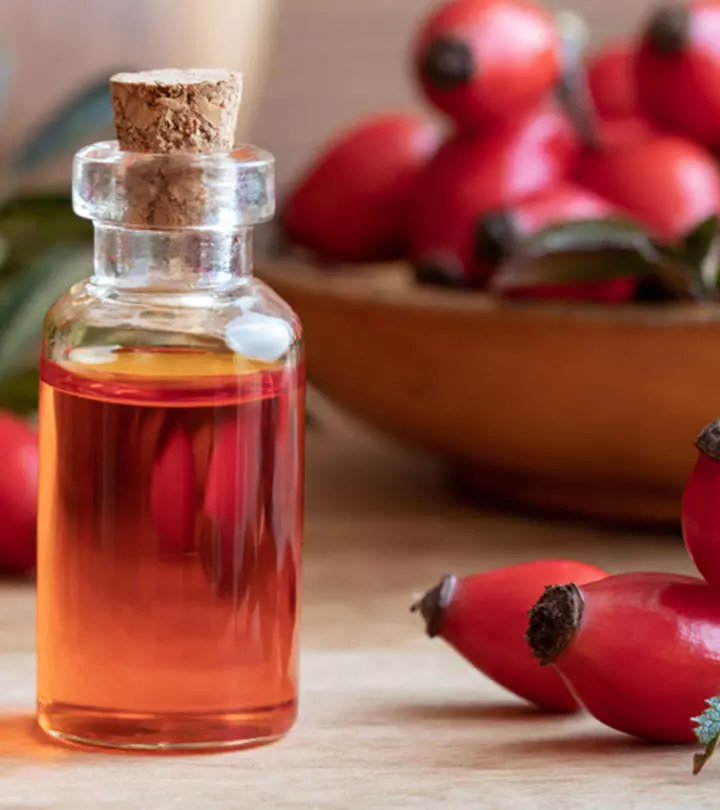
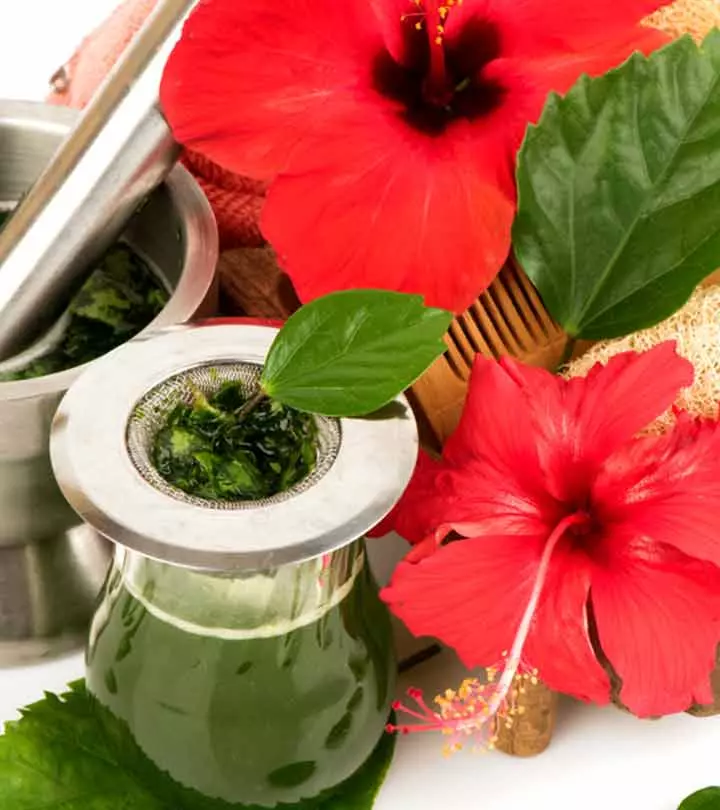

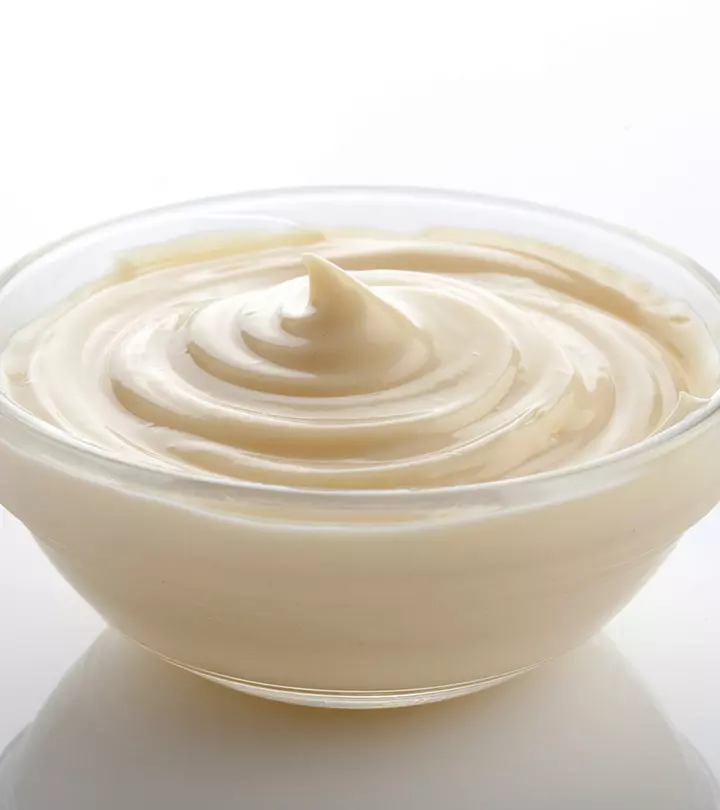
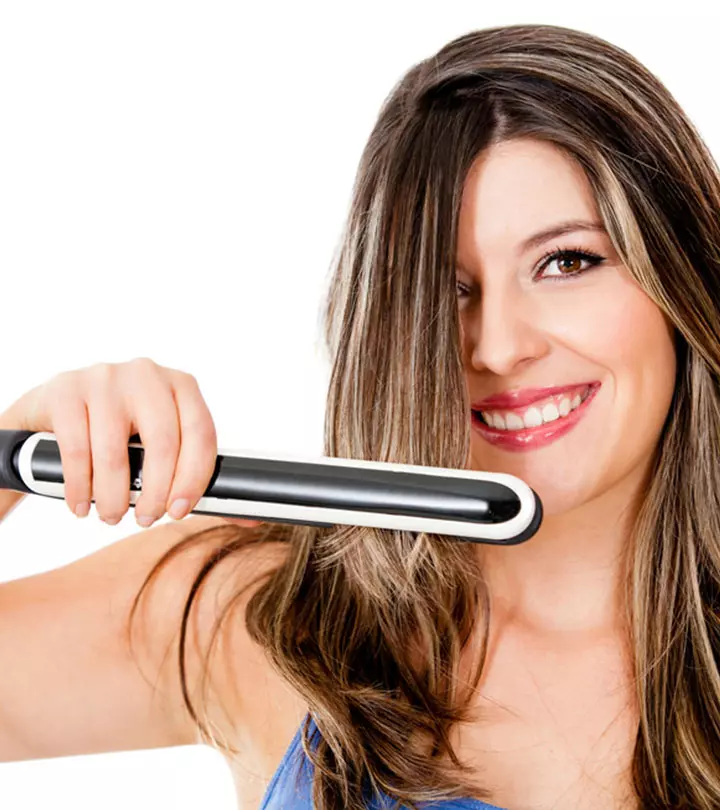
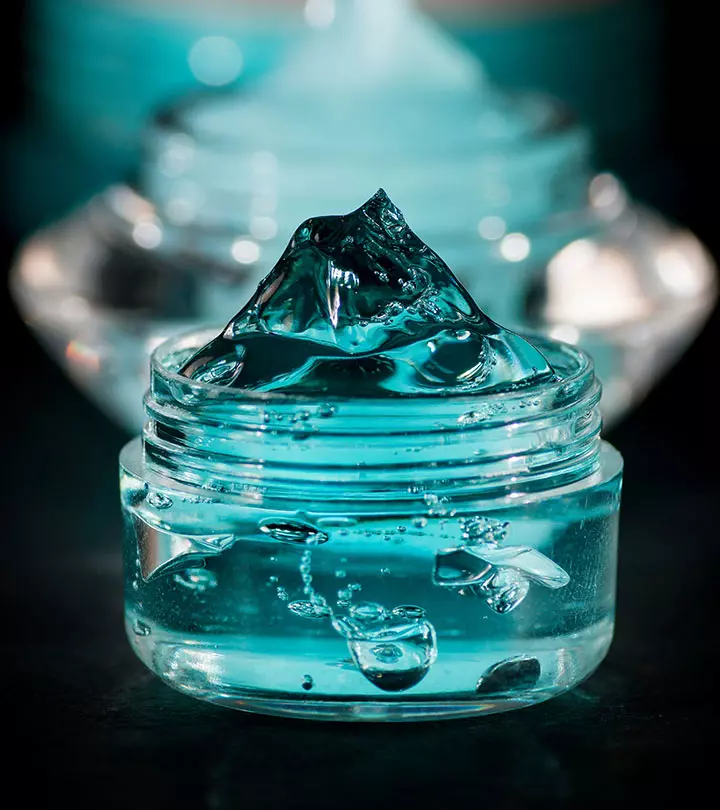
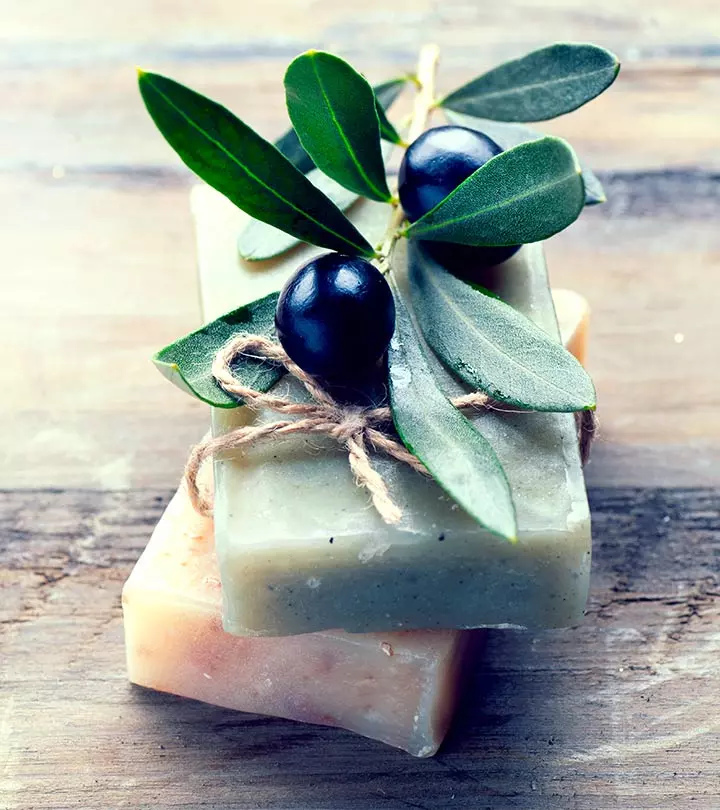
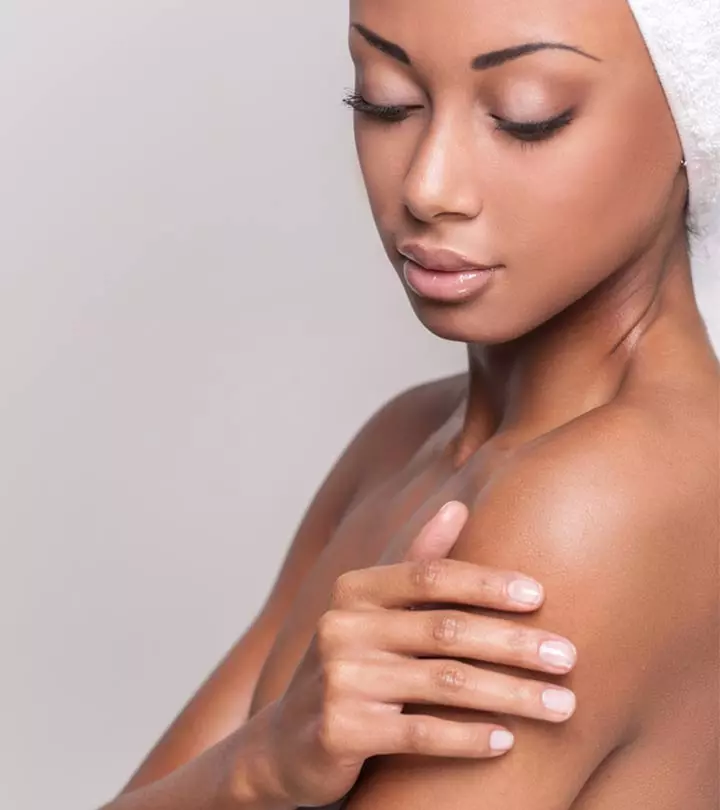

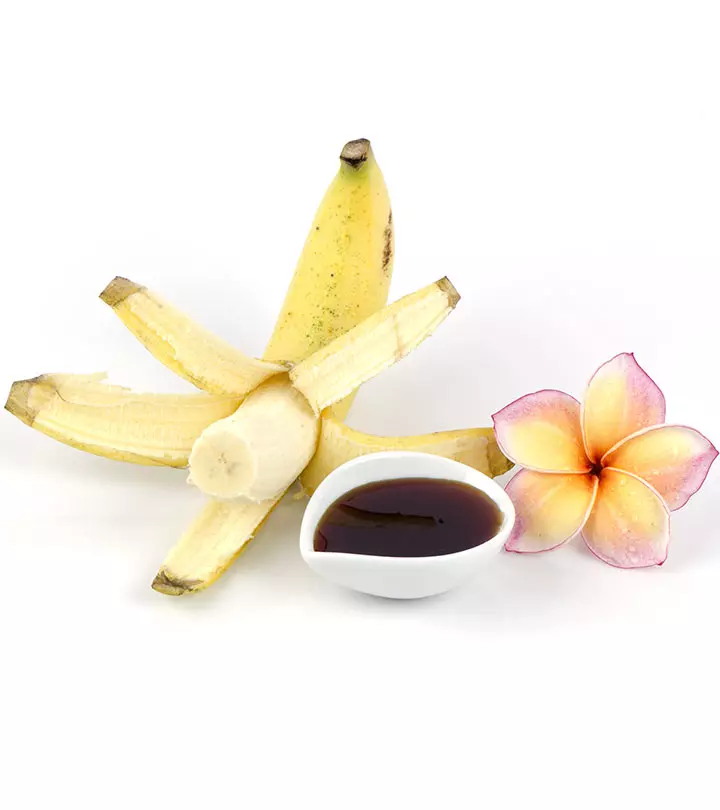

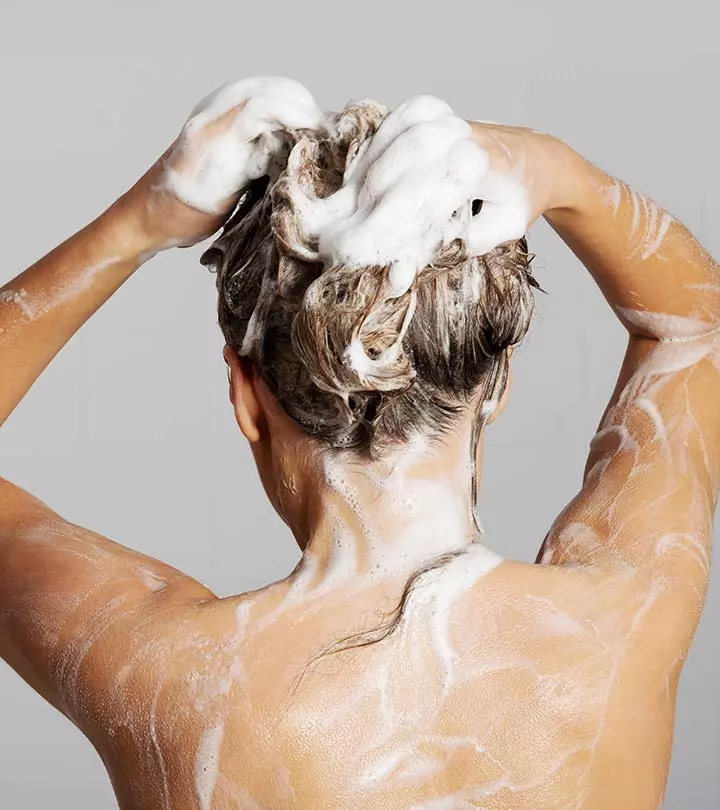

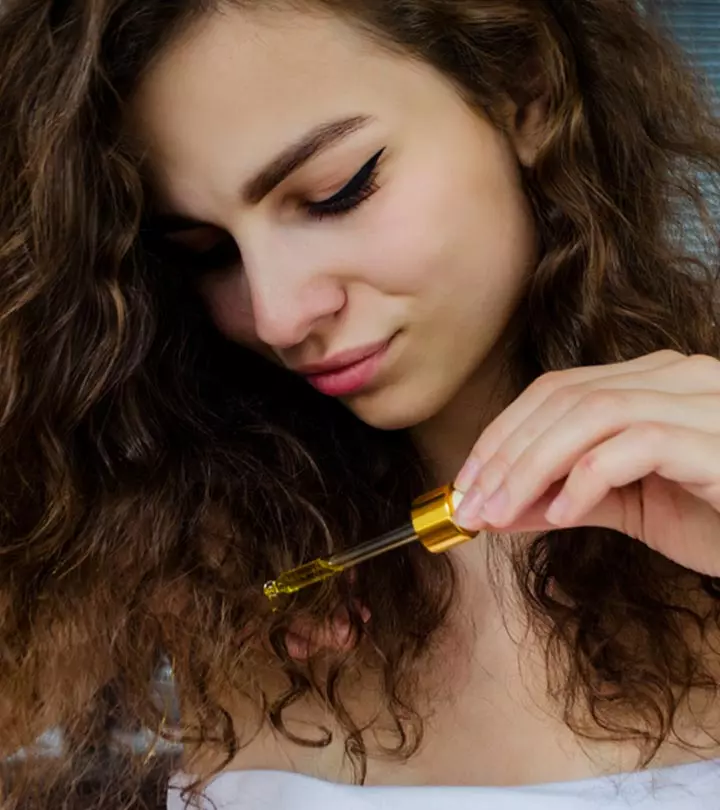
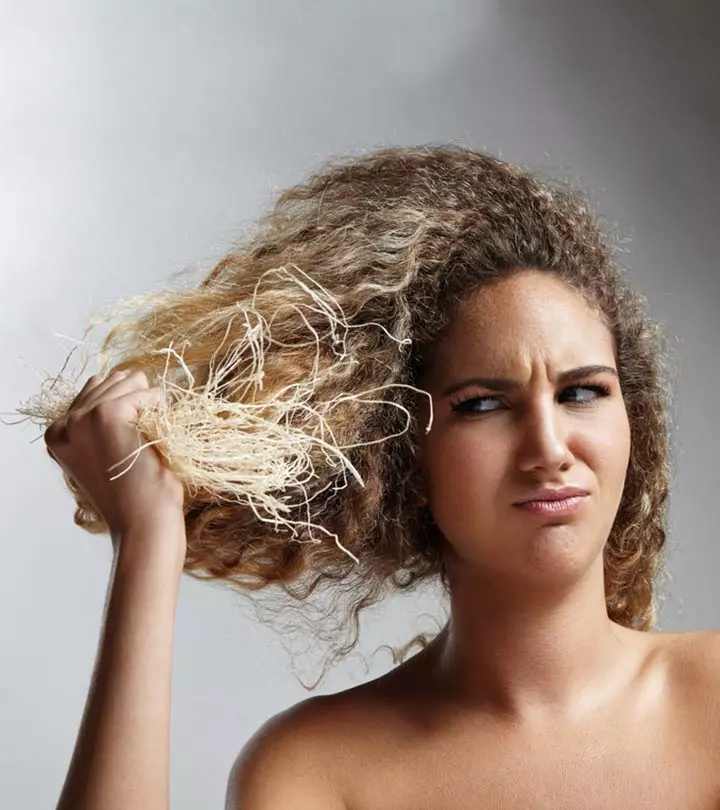
Community Experiences
Join the conversation and become a part of our empowering community! Share your stories, experiences, and insights to connect with other beauty, lifestyle, and health enthusiasts.